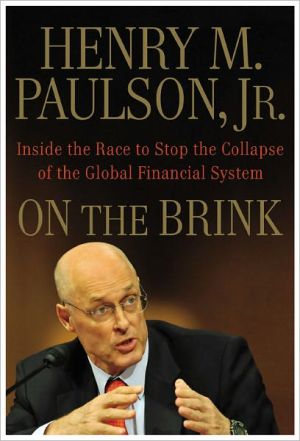Nation-States and the Multinational Corporation: A Political Economy of Foreign Direct Investment
What makes a country attractive to foreign investors? To what extent do conditions of governance and politics matter? This book provides the most systematic exploration to date of these crucial questions at the nexus of politics and economics. Using quantitative data and interviews with investment promotion agencies, investment location consultants, political risk insurers, and decision makers at multinational corporations, Nathan Jensen arrives at a surprising conclusion: Countries may be...
Search in google:
"With this book, Nathan Jensen offers new and exciting research on the political economy of foreign direct investment (FDI). Rich both in theory and in empirical evidence, this excellent work has far-reaching implications for political science and economics alike. Jensen argues that FDI does not simply go to countries with low taxes, but rather to countries with specific political institutions that provide credible commitments to secure investments. Beyond this contribution, he also explores more generally the impacts of democracy and international institutions on FDI."--James Raymond Vreeland, Yale University, author of The IMF and Economic Development"Jensen systematically analyzes the relationship between foreign direct investment and political institutions, using statistical as well as interview evidence. The book's central argument is innovative: it is credibility, not taxation, that matters to multinational firms. Jensen's work should interest policy makers as well as scholars of economic globalization."--Layna Mosley, University of North Carolina, Chapel Hill Stephen J. Kobrin - Perspectives on Politics Nathan Jensen has written an interesting, empirically grounded, and provocative book.... It is a serious effort to think about and test the impact of political institutions on multinational firms and flows of foreign direct investment.... This is worthwhile reading for anyone interested in the political economy of FDI.
Nation-States and the Multinational Corporation A Political Economy of Foreign Direct Investment \ \ By Nathan M. Jensen Princeton University Press \ Copyright © 2006 Princeton University Press\ All right reserved.\ ISBN: 978-0-691-13636-3 \ \ \ Chapter One INTRODUCTION\ 1.1 Introduction\ Multinational corporations (MNCs) play a critical role in the global economy. By most estimates, production by multinational enterprises now accounts for over one-fourth of the world's output and one-third of world trade. Moreover, many scholars believe that the investments of multinationals, commonly known as foreign direct investment (FDI), have beneficial effects on economic growth, transferring technology and managerial expertise as well as providing capital.\ A rich literature exists on firm-level decisions about FDI, but much less rigorous attention has been devoted to the national level. Why do certain countries attract multinational firms? Conventional wisdom holds that nations woo multinationals by lowering taxation levels. This act, in turn, results in invidious fiscal competition-the race to the bottom (RTB) thesis, as this phenomenon commonly appears in the literature.\ In this study I show that the fiscal competition among governments to attract FDI has been grossly exaggerated. Fixation on the race to the bottom thesis has diverted attention from an even more important factor-the major political determinants of FDI flows. Foreign direct investment entails a substantial and lastingownership stake in a venture in a host country. Activities of host governments affect the economic performance of the economy. Thus, perceptions about future conditions and future economic policies in the host inform investment decisions today. I assert that political factors have a marked influence on these decisions: governments that can commit to future economic policies conducive to multinationals' interests will achieve higher levels of FDI inflows.\ In this book I argue that political institutions that provide commitments to these "market-friendly" policies for multinationals will systematically attract higher levels of foreign direct investment inflows. Which government policies prove beneficial to multinational operations? Which political institutions provide multinational corporations with credible commitments to these market-friendly policies? These emerge as the central questions of this book.\ My overall theoretical perspective underscores that political institutions can provide credible commitments to sets of economic policies. In other words, political institutions can enhance the stability of economic policy, directed toward both multinationals (levels of taxation, for example) or more general economic policy that affects the domestic market. Institutions affect policies, and policies affect multinational operations.\ My argument does not state that multinational corporations prefer static government policies. Strong economic performance necessitates policy change in a world of dynamic political and economic conditions. In the global economy, governments must make adjustments to economic policies according to the domestic economic situation (monetary and fiscal policy) and negotiate with other nation-states on the terms of international economic agreements (bilateral treaties, monetary cooperation, work within international organizations, etc.). For institutions to have value, they must allow for the policy flexibility required for changing economic conditions.\ For example, in the realm of monetary policy few economists argue that governments should have fixed monetary policy (with the exception of some monetarists and their proposals on monetary constitutions). Instead, most scholars argue for the independence of central banks, institutions isolated from short-term political pressures, but not completely unaccountable to the country's citizens. In short, independent central banks are institutions that limit policy autonomy and partisan control of monetary policy, but they also maintain some degree of policy flexibility. Elected politicians can no longer manipulate monetary policy, but monetary policy does remain responsive to changing economic conditions.\ The main thesis of this book centers not only on the fact that political institutions that provide credibility are valuable to multinationals, but also that these institutions must be analyzed within a dynamic context. Political institutions that can make credible commitments to some level of policy stability and retain the necessary policy flexibility foster an environment multinational corporations desire. That is, political institutions must provide commitments to market-friendly policies both today and in the future. Those that can make this intertemporal commitment to multinational corporations will attract higher levels of FDI.\ In this book I discuss and empirically test the the impact of three varieties of political institutions on flows of foreign direct investment in one hundred countries from 1970 to the present. I supplement my quantitative analysis with a series of interviews with representations of multinational corporations, investment promotion agencies, investment location consultants, and political risks analysts and insurers.\ First, I argue that democratic political institutions can provide promises of market-friendly policies. The literature on the democratic peace points to a number of causal mechanisms linking democratic institutions to higher levels of credibility in the international system. Many of the same mechanisms also translate to higher levels of credibility when dealing with multinational firms. The institutional checks and balances associated with democratic systems decrease the likelihood of policy reversal, providing multinationals with a de facto commitment to policy stability. This policy stability allows multinationals to more accurately forecast budgeting needs according to future macroeconomic conditions and tax schedules, to hedge against currency risks, and to make managerial decisions in response to the predicted macroeconomic environment. In general, policy stability provides multinationals with greater assurances that the conditions that promoted entry into the market in the first place will persist.\ Although multinationals value policy stability, democratic institutions also create incentives for governments to pursue policy changes that favor multinational corporations as well. I argue that the "audience costs" associated with democratic governance provide political leaders with the proper motivation to tailor policy toward multinationals.\ In response to any negative policy change, multinationals can threaten political leaders that harm multinational operations by refusing further investment in the country, or by pulling out existing investments. This possibility exists in both types of political systems-authoritarian or democratic. Unlike authoritarian regimes, however, in democratic systems citizens have the ability to replace leaders with tarnished reputations through electoral mechanisms. Voters who want to reap the benefits of future FDI will choose candidates with the best reputations on election day. Therefore, political leaders must be wary of developing bad reputations, leading them to avoid policies that hamper multinationals' operations. While this system does not guarantee market-friendly policies, legislation that hinders multinationals in democratic societies nonetheless generates substantial political costs for leaders because the political position of multinationals proves even more "privileged" (in Lindblom's 1977 terms) than that of domestic businesses.\ Second, I argue that veto players, defined as institutions that can block or stall policy change, can have a positive impact on multinational corporations. However, these veto players, like central banking arrangements, are complex, and simply providing a bias toward the status quo (make policy difficult to change) doesn't guarantee a more conducive environment for multinationals. I argue that one type of veto player demonstrates the important properties of credibility and flexibility: federal political institutions.\ I define federal political institutions as institutions that allow regional units (states or provinces) representation at the national level. In the United States, states have both constitutionally guaranteed rights and institutionalized representation in the Senate (senators are selected from states). In other countries, such as Malaysia, subnational units have a formal veto over legislation. While the institutional structure of federal systems varies, I argue that one common theme exists. Federal political institutions increase the number of veto players in a political system and hence promote the kind of policy stability that multinationals like. Policy changes less readily as subnational governments become involved in national policy either through representation in one or both houses of a legislature or through the existence of formal veto authority.\ Moreover, political federalism tends to produce market-friendly policies. Unlike Weingast's (1995) "market-promoting federalism" argument, I do not contend that competition among subnational units leads to market-friendly policies; rather, the differing incentives of subnational units from the central government regarding the treatment of multinational corporations holds the key to ensuring their enticement. That is, competition between states for multinationals holds little explanatory value. Instead, the complex relationship between the central government and subnational governments provides assurances of future economic policies that multinationals will prefer.\ I argue that central governments have incentives to renegotiate policies with multinationals, such as taxation rates, after investment takes place, or to change macroeconomic policy without regard to the effects on multinationals. Indeed, a time inconsistency problem of government policy toward multinationals emerges. Governments often promise multinationals the world prior to investment, but once that commitment has been made, the central government has incentives to backtrack on these enticements. In centralized (nonfederal) systems, the national government must weigh the benefits of policy change against the negative reputation effects to the central government. In these systems, governments suffer constraints only when reneging on a contract with a multinational affects their reputation and thus their ability to attract other multinationals in the future.\ In federal systems the incentive structure differs slightly. Although FDI benefits national economies in the aggregate, many of the specific goods are local, such as employment creation and spillovers on the local economy. I argue that these localized benefits depend on the productive operation of the multinational firm. Thus, subnational units possess both the incentive and the ability to veto legislation that would hamper the operations of the multinational, leading these corporations to prefer to invest in these types of systems.\ One theme of this book centers on the effect of federal institutions on foreign direct investment inflows. I find that politically federal institutions, those that give regional units (states or provinces) representation at the national level, attract more FDI than unitary regimes. On the other hand, fiscally federal institutions, those that give regional units (states or provinces) the ability to tax and spend autonomously from the central government, have no impact on multinationals' investment decisions.\ Third, I explore the impact of the International Monetary Fund (IMF) on foreign direct investment inflows. Countries in economic crisis sign agreements with the IMF that provide capital and conditions on future economic policies. IMF conditionality ties future loan disbursements to specific economic policies. One might think that IMF conditionality should help lock governments into a particular, market-friendly, policy equilibrium, spurring higher levels of policy stability and therefore leading governments under IMF programs to attract higher levels of FDI.\ I argue, however, that while IMF agreements do promote policy stability, they also promote policies that do not attract multinationals. The IMF conditions loans on economic reforms, highlighting fiscal austerity among other things. These plans often lead to decreased spending on market-promoting public goods such as education and infrastructure-both of which are important to multinationals. IMF conditions may actually increase political instability and social unrest by prescribing austerity policies in low-income and middle-income countries. These policies can create a societal backlash that may lead to escalating levels of protests and violence, along with electoral instability as incumbent governments fall from office. On balance, the IMF loans, and the conditionality associated with these funds, may increase levels of policy stability, but multinationals perceive them negatively due to the political and economic effects of these policies.\ In an analysis of the impact of IMF programs I find that countries under IMF agreements tend to enjoy lower FDI inflows. These countries attract 28 percent less FDI, even when controlling for the macroeconomic factors that led these countries to seek IMF support in the first place. These results provide clear leverage over what has become a dense research thicket in recent years-the effects of political institutions on growth. No consensus exists, for example, on whether democracy, federalism, and IMF programs promote economic growth. If FDI significantly drives growth, my results have powerful implications for the policy choices of national governments and for the behavior of international institutions such as the IMF.\ 1.2 The Conventional Wisdom: The Race to the Bottom Thesis\ The myth of capital mobility hinders our ability to understand FDI flows. Much of the literature on the competition for FDI assumes that multinational corporations remain mobile in their investment decisions. According to this perspective, multinationals search the world for investment opportunities, playing governments against one another, entering and exiting domestic markets at will in an attempt to obtain higher returns. However, this view of high capital mobility-of frictionless investment across national borders-contravenes decades of research on FDI that has focused on imperfect market approaches in the study of multinational firms.\ The race to the bottom thesis rests on this myth of high capital mobility. Scholars who argue this position assert that domestic governments must pander to multinational corporations, attracting them with the only viable tools at their disposal: regulation and fiscal policy. Domestic governments, for example, loosen environmental protection, relax labor standards, and alter patterns of government fiscal policy. Governments must attract multinationals, the proponents of this thesis contend, by decreasing levels of capital taxation, leading either to lower levels of government spending or a shifting of the burden of taxation from capital to labor.\ In reality, multinational investments, while relatively liquid ex ante, become much more illiquid ex post. Once a multinational corporation commits resources to an investment location, it remains relatively immobile. Although multinationals may enjoy considerable bargaining power prior to investment, a large degree shifts to the host government once it secures the deal.\ This ex-post immobility of multinationals forces firms to try to predict the future policies of host governments. Politicians may attempt to make assurances on future policies, but governments have the incentive to change policy once a multinational has devoted substantial resources to the project. Governments that can credibly commit to a specific policy equilibrium, ensuring policy stability, should attract higher levels of FDI by lowering political risks for multinationals. More importantly, governments that can offer market-friendly policies assure multinationals of a favorable policy environment for their operations. This ability to provide multinationals security on future policy proves central to attracting FDI.\ By ignoring the complexity of investment decisions, the race to the bottom thesis overemphasizes the importance of fiscal competition for FDI and downplays the importance of the political factors that affect government policy. The following sections elaborate on the importance of political institutions on FDI inflows.\ (Continues...)\ \ \ \ \ Excerpted from Nation-States and the Multinational Corporation by Nathan M. Jensen\ Copyright © 2006 by Princeton University Press. Excerpted by permission.\ All rights reserved. No part of this excerpt may be reproduced or reprinted without permission in writing from the publisher.\ Excerpts are provided by Dial-A-Book Inc. solely for the personal use of visitors to this web site. \ \
List of Illustrations ixPreface xiList of Abbreviations xvIntroduction 1Multinational Firms and Domestic Governments 23Theory 40The Race to the Bottom Thesis and FDI 53Democracy and FDI 72Veto Players and FDI 100The IMF and FDI Inflows 129Conclusion 146Notes 157References 167Index 185
\ Enterprise and Society[T]he book captures the impact of political institutions on multinational investments and contributes to international business, organizational economics, and institutional literature streams. To the global audience, nation-states keen on enticing foreign investors will benefit from Jensen's insight.\ — Amit Jain\ \ \ \ \ Perspectives on PoliticsNathan Jensen has written an interesting, empirically grounded, and provocative book.... It is a serious effort to think about and test the impact of political institutions on multinational firms and flows of foreign direct investment.... This is worthwhile reading for anyone interested in the political economy of FDI.\ — Stephen J. Kobrin\ \ \ Perspectives on Politics\ - Stephen J. Kobrin\ Nathan Jensen has written an interesting, empirically grounded, and provocative book.... It is a serious effort to think about and test the impact of political institutions on multinational firms and flows of foreign direct investment.... This is worthwhile reading for anyone interested in the political economy of FDI.\ \ \ \ \ Enterprise and Society\ - Amit Jain\ [T]he book captures the impact of political institutions on multinational investments and contributes to international business, organizational economics, and institutional literature streams. To the global audience, nation-states keen on enticing foreign investors will benefit from Jensen's insight.\ \








